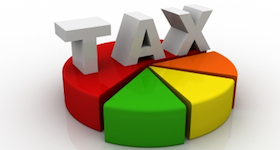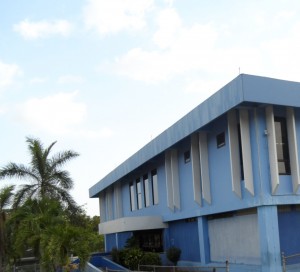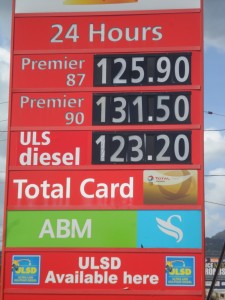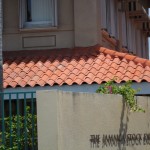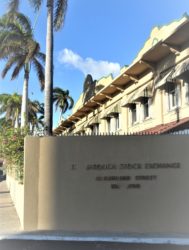 Jamaica’s net international reserves continue to scale new heights closing at the end of August 2023 jumped US$299 million to a record month end balance of US$4.43 billion, up from US$4.13 billion at the end of July.
Jamaica’s net international reserves continue to scale new heights closing at the end of August 2023 jumped US$299 million to a record month end balance of US$4.43 billion, up from US$4.13 billion at the end of July.
The main factor driving the reserve is a reduction of amounts due to the International Monetary Fund (IMF) of $362 million moving the figure from US$508 million in short term debt down to US$146 million at the end of August.
At the end of December last year, the reserves stood at US$3.978 billion and have climbed US$456 million for the year to date.
Jamaica’ NIR jumps to record high
Jamaica’s reserves spike US$100m
Jamaica’s Net International Reserves climbed US$100 million higher in May to reach US$3.42 billion from US$3.32 at the end of April after a $300 million surge in March with a rise of US$303 to US$3.32 billion from US$3.016 billion at the end of February, this year.
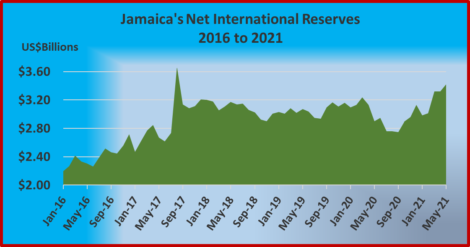 The country’s gross reserves are now at US$4.35 billion and include US$930 million due to the International Monetary Fund. The increase in May comes at a time when inflows from tourism are at the highest levels since March 2020 as the sector makes rapid strides in recovery, with May having the highest number of overseas visitors since the country reopened its borders to tourist in June last year. Reports from the tourism industry suggest that visitor arrival numbers for June and July will be appreciably better than for May and should add to foreign currency inflows into the country and most likely the NIR as well.
The country’s gross reserves are now at US$4.35 billion and include US$930 million due to the International Monetary Fund. The increase in May comes at a time when inflows from tourism are at the highest levels since March 2020 as the sector makes rapid strides in recovery, with May having the highest number of overseas visitors since the country reopened its borders to tourist in June last year. Reports from the tourism industry suggest that visitor arrival numbers for June and July will be appreciably better than for May and should add to foreign currency inflows into the country and most likely the NIR as well.
The country is also benefitting from a continued increase in remittances inflows that became evident since May 2020.
The reserves are at the highest sustained levels in the country’s history. The net reserves represent an estimated 30.57 weeks of Goods & Services imports for Jamaica.
Jamaica’s NIR continues to rise
 Net International Reserves (NIR) US$69 to close out November at US$2,963 up from US$2,893 in October. Jamaica’s NIR had a big jump of US$146 million in October from US$2.75 billion at the end of September.
Net International Reserves (NIR) US$69 to close out November at US$2,963 up from US$2,893 in October. Jamaica’s NIR had a big jump of US$146 million in October from US$2.75 billion at the end of September.
Gross reserves rose by $73 million to $3.93 billion that includes US$970 million due to the International Monetary Fund. The October increase was the first major rise in net reserves for 2020. In March, the NIR rose to US$3.24 billion from US$3.13 billion, slipped to US$2.9 billion in May and ended July at a low of US$2.76 billion. The NIR now represents 38 weeks of goods and service imports, the Central Bank states.
FCIB 2nd Caribbean bank to abort US listing
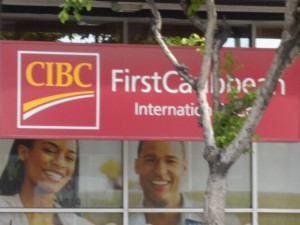
FirstCaribbean aborts IPO for NYSE listing.
Firstcaribbean International Bank (FCI) announced that they have withdrawn their planned initial public offering ahead of its plan to list on the New York Stock Exchange.
The Trinidad and Tobago Stock Exchange advised today, that they received notice from FCI advising of the withdrawal of the US registered public offering and listing of its shares on the NYSE in view of market conditions at this juncture. FCI had filed a registration statement in December 2017 relating to this public offering and proposed listing on the NYSE under the symbol “FCI”.
The company is the second Caribbean based banking group to have moved forward with plans to list on that stock exchange. The first was NCB Group in 2013, incurring a $680 million hit from the costs relating to aborted Initial Public Offering (IPO) in the 2013 fiscal year to September, according to the company’s audited financial statements.
The banking group was attempting to raise fresh capital in the international market, during the turbulent period ahead of the country reaching an agreement with the International Monetary Fund (IMF). The amount involved was written off against income thus helping to depress profits for the year.
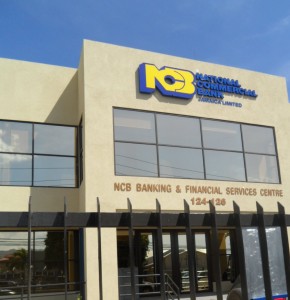
NCB lost $700M in its aborted NYSE IPO plans in 2013.
Since then NCB has gone on to report record profits in 2017 with a 28 percent increase in the first quarter to December last year. At the same time FCIB that struggled for several years as it was battered by Caribbean countries in deep recession only saw a rebound in fortunes in recent years.
In 2013, the FCIB group adjusted profit was just US$35 million rising to $83 million in 2014 and onto $123 million the following year then $143 million in 2016 and $151 million last year, but revenues have just barely grown as loans have stagnated with US$6.36 billion in 2017 from US$6.3 billion in 2013.
JMMB managed funds jump 51%
 JMMB Group enjoyed a big jump in the total amount of managed funds being handled by the group in addition to the $223 billion that the group has on its balance sheet.
JMMB Group enjoyed a big jump in the total amount of managed funds being handled by the group in addition to the $223 billion that the group has on its balance sheet.
Off balance sheet funds jumped 51.2 percent to $58.8 billion, compared to J$38.9 billion for the prior year and is consistent with the Group’s strategy of moving assets off balance sheet as well as the dictates of the International Monetary Fund and the country’s Financial Securities commission. JMMB would be using the slate of Unit Trust as vehicles for shifting funds from on balance sheet to off balance sheet.
This trend is not peculiar to JMMB as other institutions have been on this path for some time. Effective October last year the Financial Services Commission, set a minimum amount for a retail repo. Currently the level is J$500,000 and US$5,000 and is scheduled to be increased on a phased basis to $1 million and US$10,000 by the end of December, this year.
JMMB stated in it release with the quarterly results to June that “the Group is now poised to expand its range of services in the Dominican Republic with the approval of its money market mutual funds”.
